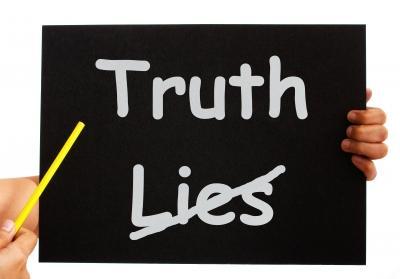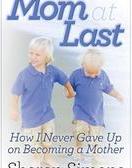By Amy Roberts
A short time ago it was announced on the evening news that there is an epidemic of obesity in my country. An “Epidemic”, according to the night time news is 1 in 4 people. So that means anything that is a challenge health wise, bringing suffering must be an epidemic, right? If that’s the case then I can confirm that in the western world we have a miscarriage epidemic.

Miscarriage is one of the most common and significant losses in a woman’s life, yet no one talks about it, no one openly discusses it and certainly no one understands it. Especially when it comes to understanding the devastating grief that goes with it.
When you become pregnant you enter a big club for women. Its a subculture. You are accepted into the club with open arms. But when you loose the baby youare no longer a part of this club and you can no longer “fit right back in” to where you were before you were pregnant. You are in limbo. There’s no where to go.
At 14 weeks gestation I lost my baby. In fact I painfully gave birth to my dead baby on the bathroom floor, only to be told by friends “you can always have another one” and “yeah but you’re a positive person, you’ll get over it.”
One friend said to me two weeks after I lost my baby “are you all okay now, back to your old positive self?” Was she kidding? Just because I’m a positive person doesn’t mean I don’t feel grief. (Where DOES that misconception come from?)
One woman I spoke to about it even tried to talk me out of my grief saying “yes but look at all the positives that have come out of it, I bet you’re stronger now.”
Positives? What’s positive about a baby dying in your body?
One social worker friend who I was close to for over ten years didn’t even call me when I left a message and told him what happened. He said later he was busy.
It’s enough to drive you insane.
And the bonus line that Doctors and care providers love to give “Its very common.” So are car accidents but you would never put your arm around a car accident victim and say “Don’t worry its very common.” You would feel like a right twit. But people don’t seem to mind saying it to a woman who has just had a miscarriage. In fact people feel justified because it was not a “real” baby. It was just a bit of blood.
You see a woman connects with that baby from day 1. She imagines a giving birth to a beautiful baby who loves her, and whom she can love. She imagines the bond and the love with her from the moment she finds out she’s pregnant. She imagines a 5 year old running around the house, sharing each others lives, sharing each others love. Pregnancy is the promise of a best friend who will never leave you. Its a happiness you can only liken to childhood joy at Christmas time, or being in love for the very first time. Its the most emotionally uplifting time of your life.
When the child dies, whether at 2 weeks of pregnancy or at 18 weeks, that happiness she felt becomes replaced with a crushing loss and heavy sadness. Its not only been taken from her, (often without any answers from medicos as to why) but the physical signs of a death has occurred right in her own body. The blood she experiences for almost two weeks is the blood of the death that has occurred in her own body. The death of the best friend.
The blood is frightening and so is the prospect of facing the world again with this devastating loss. And knowing that she will never get the right support, so she chooses to keep this a secret. This is accompanied with, (Often) crushing feelings of guilt. “What if I hadn’t bent over to pick up the spoon that dropped on the floor”, “what if I hadn’t stood up for so long at work, “what if I’d had the low fat biscuit instead of the full fat one” etc, etc. The mental hounding is unbearable.
You see the more people express their lack of support, the longer she grieves and the harder the grief is to accept.
The good news is that society can have a big influence on a woman’s healing and emotional recovery. Other people around her have the power to help her, and that’s a great thing. And you will be amzed at what a little thing does to help. Such loving and kind words at a time of loss has the most profound feelings of healing and acceptance. Its the difference between “not knowing how to get through this” and “gee maybe I can get through this after all.” Thats the power that supportvie actions have on a woman who has just had a miscarriage.
Lets look at the healing power that we can have for her;
Firstly if a woman you know has had a miscarriage:
Don’t try to talk her out of it by always talking about the positive things that have come out of it. Accept her feelings after all that blissful happiness has vanished and been replaced with loss and grief that has changed her as a person its so profound. There’s nothing positive about losing a beloved baby.
Don’t Avoid her. She may feel totally rejected. If you are uncomfortable just remember it’s not about you; its about her. It’s her loss and you don’t have to feel uncomfortable just because it’s a womens issue.
Don’t try to “cheer her up.” It will only appear worse and she will feel as if you are not really understanding her or wanting to let her be herself. She doesn’t need “cheering up” she needs love and to talk about whats happened.
Don’t give her advice. The last thing a grieving woman wants to hear is what she “should” do, or what she “must” so. It will feel like you are shutting out her deep feelings of sadness.
Don’t say “yes but at least you have other children.” The other children aren’t the problem, the loss her new child is the problem, she wanted her new one just as much as she wanted the others. Each child is unique.
Don’t say “well at least you conceived straight away, not many couples can do that.” Whether it took her five minutes or five years to conceive she’s still experienced a huge loss that has profoundly changed her life. She is now a different person.
The best thing that you can do is:
Support her and ask if there is anything you can do.
Send her flowers to acknowledge her loss.
Write a simple message on a card “sorry for the loss of your little baby.”
Offer to help her honor her baby in the form of a plant or a candle.
Ask if she needs practical help such as housework or running errands.
Ask her what date the baby would have been born, then around that date send her some flowers to say you are thinking of her.
Take her out and celebrate her baby’s life, no matter how short it was it still touched her deeply.
Treat her miscarriage like you would the death of a loved one in her family- because the baby was a loved one who has indeed died.
And the best thing you can do to start changing how societies view of miscarriage; acknowledge it openly and talk about it with her.
Together we can make a significant change to grieving women and help them recovery and feel happiness again. Just a gentle support, a loving message, a phone call to say hi will be appreciated in ways she may not be able to express. Never underestimate how good your love can be.
About the Author
Amy Roberts is a successful online entrepreneur and public speaker. She travels internationally for her business coaching work and helps many people have successful businesses around the world. She is a supported of women in business, and healthy self development. She lives in Brisbane, Australia. Her blog on miscarriage is http://www.healingfrommiscarriage.blogspot.com
Article Source: http://EzineArticles.com/337939
Image courtesy of Stuart Miles / FreeDigitalPhotos.net

